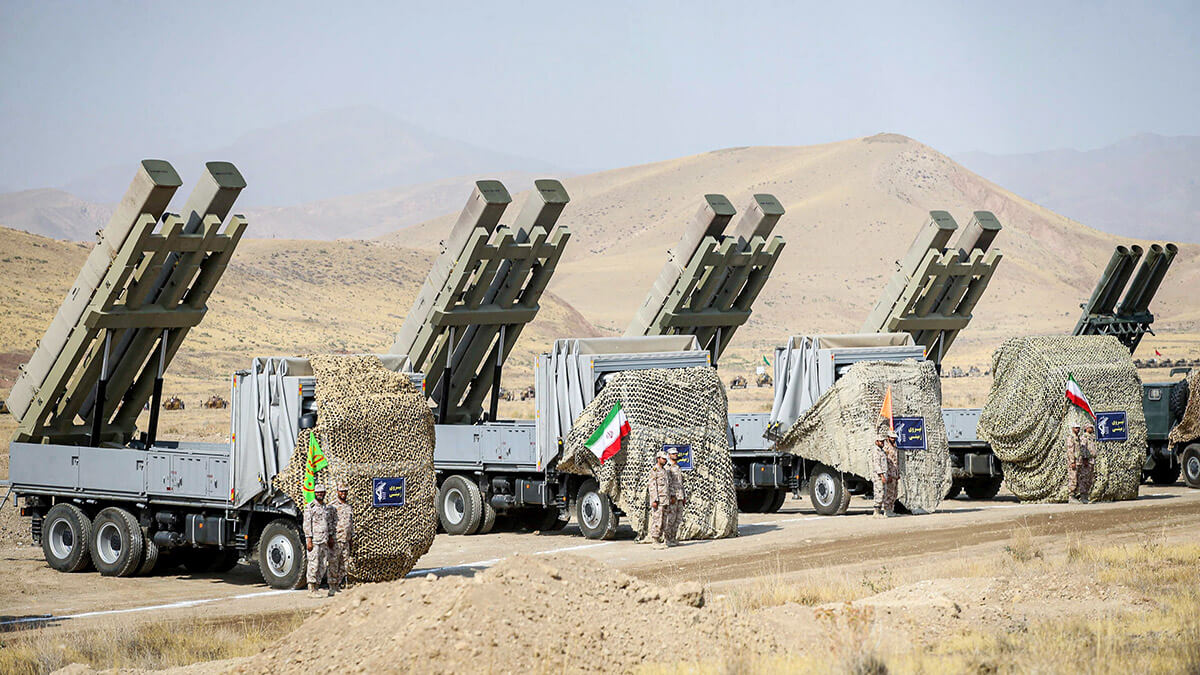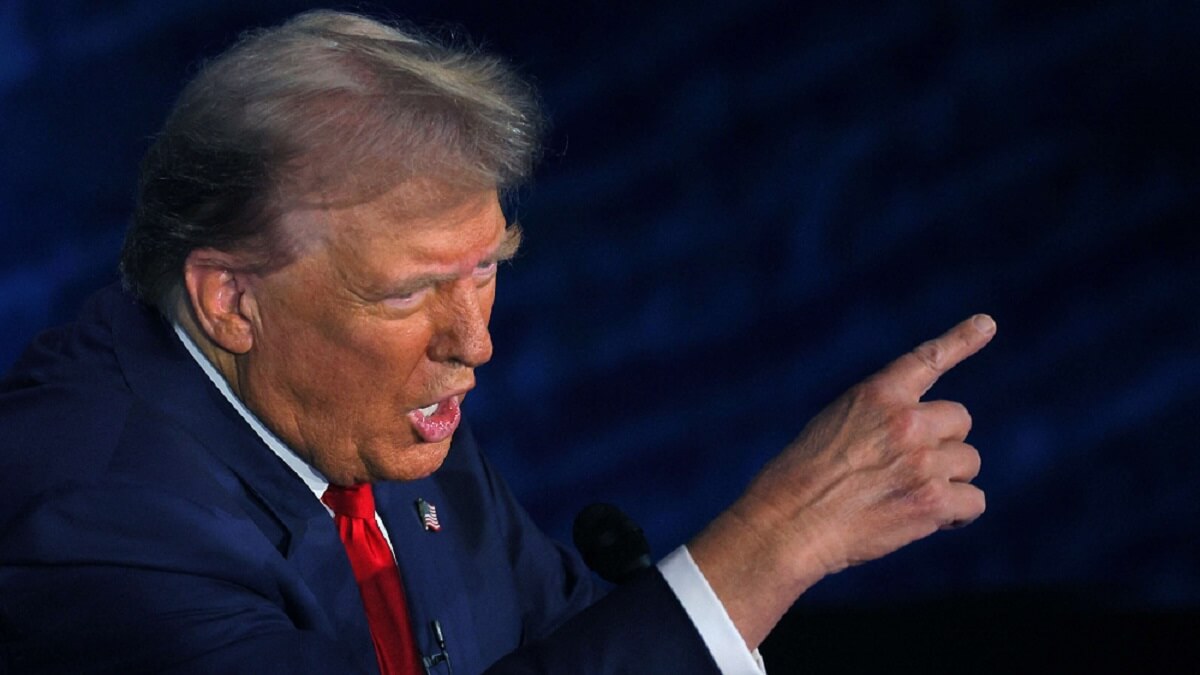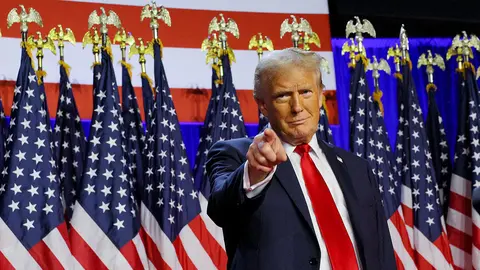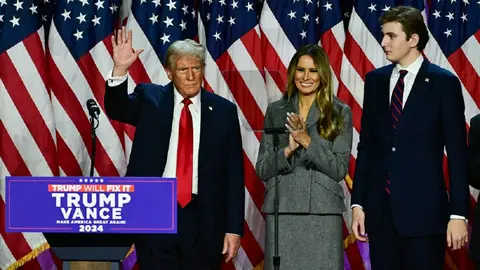The Middle East, pending future US foreign policy in the wake of Trump's victory

The Middle East is waiting to see what kind of foreign policy Donald Trump will pursue after his return to the White House.
For most Arab public opinion, the main concern is the US president's ability or willingness to push for a quick end to Israel's wars in Gaza and Lebanon. But given his obvious pro-Israeli bias, scepticism prevails, while the nuances and complexities of the conflict are left to the governments of the region.
For these governments, an end to Israel's multi-front war will go a long way towards underpinning their own stability at home.
Trump has expressed support for Israel's fight to destroy Hamas in Gaza, but has said Netanyahu must finish the job quickly.
The new US president is expected to continue to arm Israel, while his policy towards the Jewish state is likely to be unconditional on humanitarian grounds, in contrast to the pressure Biden has exerted on a limited basis and during his last weeks in office. However, the Israeli prime minister may not have carte blanche in his conduct of the war, analysts say.
‘Netanyahu will face a much tougher president than he is used to in the sense that I don't think Trump will tolerate wars the way they are happening,’ Mustafa Barghouti, leader of the Palestinian National Initiative, told CNN.
‘Trump doesn't want those wars on his desk as a hot topic’ after he takes office, Alon Pinkas, a former Israeli diplomat, also said.
Trump's second major concern in the Middle East is Iran. US strategy towards Tehran is complicated this time by Iran's recent role in regional developments.
Trump will face a volatile Middle East that threatens to spiral into a wider regional conflict that drags in not only Iran and Israel but also the US.

There is speculation that Trump could re-impose his ‘maximum pressure policy’ through increased sanctions on Iran's oil industry, while giving the green light to Israel's plans to attack its nuclear sites and hydrocarbon facilities and carry out ‘targeted assassinations’ against Iranian targets.
During his first term, Trump reimposed sanctions on Iran after withdrawing from a 2015 nuclear pact between Iran and world powers that had restricted Tehran's nuclear programme in exchange for economic benefits.
The reinstatement of US sanctions in 2018 hit Iran's oil exports, cutting government revenues and forcing it to take unpopular measures such as raising taxes and running large budget deficits, policies that have kept annual inflation near 40%.
Despite its professed indifference to the outcome of the US election, Iran is seen as wary of a possible tightening of US policies.
With a more moderate president in charge in Tehran and facing domestic economic and social pressures, Iran may seek talks with the US.
‘Public hostility towards the Iranian regime, but a private willingness to compromise, will likely characterise another Trump term,’ says Dunne.
While dealing with the war in Gaza and Lebanon and the challenge from Iran, Trump will not be able to ignore the Palestinians as he did during his first term. The end of the Israeli wars will not mean the resolution of the Israeli-Palestinian conflict. Congratulating Trump on his victory, Palestinian President Mahmoud Abbas said on Wednesday that he was confident the new US president would support the Palestinians' ‘legitimate aspirations‘ for an independent state.

But many experts are far less optimistic and believe Trump is leaning in the other direction. ‘Proposals circulating within the Israeli political establishment to reoccupy Gaza or even to establish new settlements there could find a sympathetic ear in the Oval Office,’ Charles Dunne recently wrote for the Washington Arab Center.
Trump's future stance on the Palestinian issue will be directly linked to his likely push for further steps towards Israel's ‘regional integration’. The last time Trump was in the White House, he presided over the signing of the Abraham Accords between Israel, the United Arab Emirates, Bahrain and Morocco, but those diplomatic agreements did nothing to advance the creation of a Palestinian state in the West Bank and Gaza. It remains to be seen whether he might be open to the idea of a Palestinian state if it is the only way to end the wars in the Middle East.
Trump is expected to continue this transactional approach with the Arab Gulf states.
But he will have to contend with a Gulf region that has diversified economic and even military alliances, including with China and Russia. Key countries, including Saudi Arabia, will negotiate hard to preserve their security interests. While seeking a security pact with the US, Riyadh is unlikely to budge on its demand that Israel's acceptance of a credible path towards Palestinian statehood be a precondition for normalisation.
For Qatar, criticism of its ties with Hamas, despite its role in brokering the Gaza truce, is unlikely to disappear under a Trump White House backed by a Republican-controlled Senate.
‘Those relationships may ... prove to be a liability under a Trump administration,’ according to Hasan Alhasan, senior fellow for Middle East policy at the Bahrain International Institute for Strategic Studies.
‘They are probably quite worried about what could be a Trump 2.0,’ he said.










